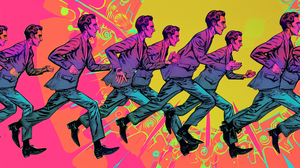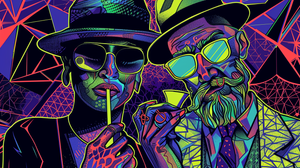What Really Happens When You Die?
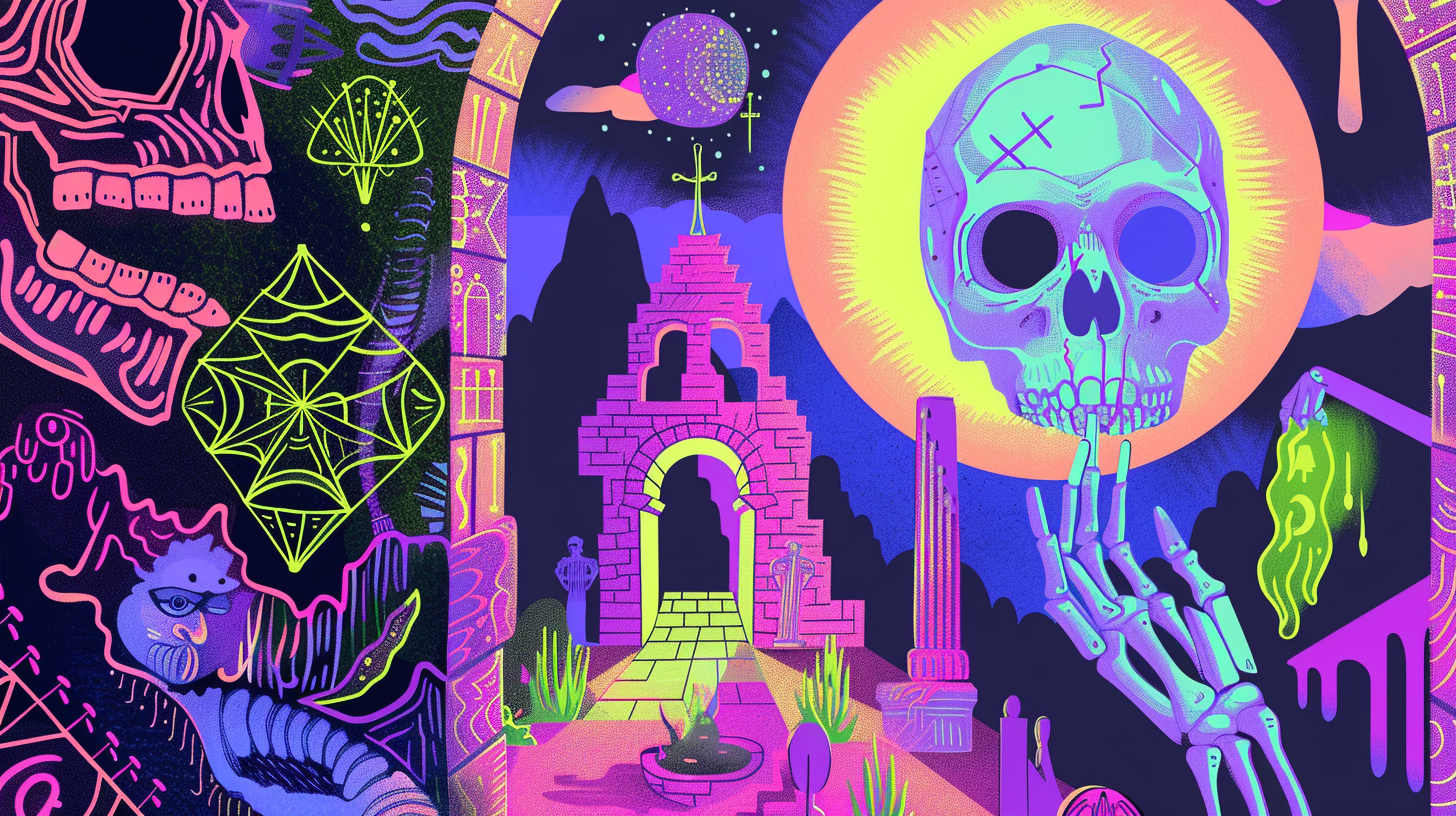
So...What Happens When You Die?
What happens to when you die? At the end of life, our bodies halt, but is the journey truly over?
We address this question head-on, exploring the finality of our physical existence and the subsequent possibilities that many cultures and beliefs consider.
This article strips away the mystery and provides a frank, concise discussion about death’s aftermath without advocating for any single perspective.
Key Takeaways
-
The moment of death is both a physical cessation of bodily functions and, for many, the beginning of the soul’s journey to the spiritual world, implying a serene transition rather than an absolute end.
-
Death is seen differently across various cultures and religions, with beliefs ranging from heavenly rewards and eternal life in Christianity and Islam, to reincarnation in Eastern philosophies, such as Hinduism and Buddhism, and a varying spectrum of interpretations in other faiths.
-
The death experience can vary greatly, with some undergoing a long process that allows for reflection and preparation (the long death), while others may experience sudden departure (the short death), affecting the readiness and closure for both the dying and their loved ones.
The Transition at the Moment of Death
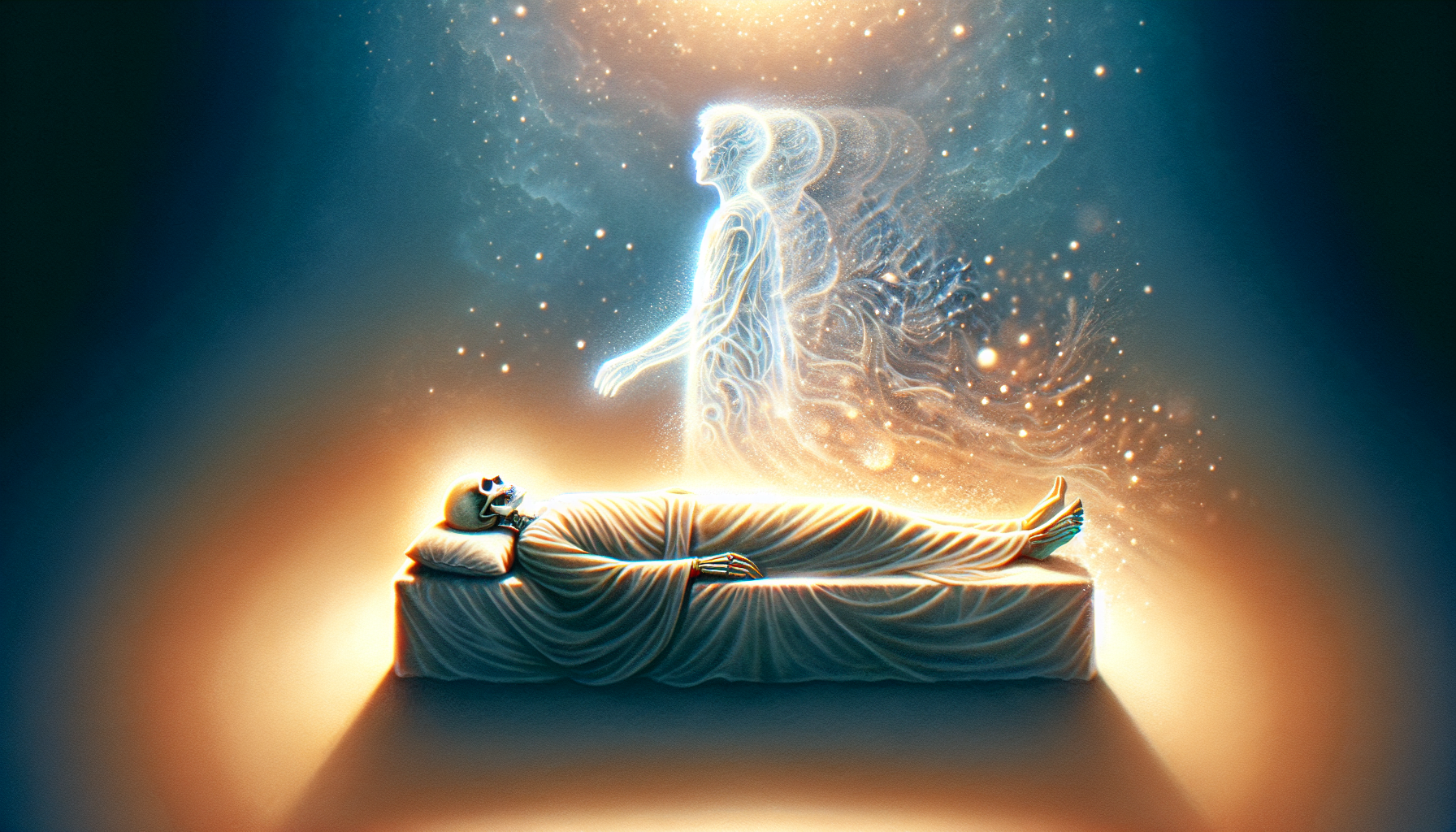
As the final chapter of life approaches, a remarkable transformation begins. The spirit and body, long intertwined, commence their separation.
This pivotal moment marks not an end, but rather the dawn of the spirit’s journey toward the spirit world. For the body, it’s a cessation of its vital functions, a silent signal that the soul is withdrawing its projection of consciousness and ending its physical presence.
It’s a serene departure, one that often unfolds quietly as the body dies, leaving behind a legacy of memories and the echo of a life lived.
Some research suggests that during this sacred transition, the soul embarks on an observation phase, calmly and detachedly surveying the events surrounding its former vessel.
It’s not uncommon for the soul to be drawn to its own funeral or memorial, continuing to observe the living, influenced by their thoughts and emotions.
Medically, death is defined by the cessation of blood circulation, breathing, or brain activity, but for those who believe in a spiritual existence beyond death, comfort is found in the notion that life continues in another form, without the pain or suffering that may have marked their final days.
The Final Breath
As the dying person nears their final moments, the body goes through several changes:
-
The heart beats slower
-
Blood pressure falls
-
Muscles relax
-
Blood circulation dwindles, and the vital organs, including the brain, receive less oxygen, eventually leading to the point where the organs shut and the brain stops functioning
-
The moment of death is marked by the body’s vital functions stop
-
After death, as the body temperature drops, it begins its natural cooling process, leading to a decrease in body temperature, known as algor mortis
These changes are a testament to the life that once was at the actual moment.
The signs that someone has passed are unmistakable: the cessation of the heart and lungs, the brain’s silence, and the body’s surrender to stillness.
It’s a moment of profound rest, a final release where breathing ceases, and the body falls open to the eternal sleep, akin to falling asleep but with a permanence.
It’s a moment so definitive that even the most experienced doctor can only stand in reverence to the natural order of life and death.
Beyond the Physical
As the physical body cools and the body’s cells transition to stillness, the soul’s consciousness is liberated, soaring to a higher energetic frequency. This is the point where human beings, once bound by earth and skin, become unfettered, free from the limitations that life imposed.
The soul, in its newfound liberty, finds that it can:
-
Visit places and loved ones with mere thought
-
Communicate with other souls
-
Gain knowledge and wisdom from the universe
-
Experience pure love and joy
-
Connect with higher beings and spiritual guides
All of this is possible, unencumbered by the laws of the physical world.
Existing in this otherworldly state, the soul becomes cradled by overwhelming love and comfort, reflecting its connection to a greater oneness - a divine source.
The afterlife is a process of enlightenment, a transformation of the soul’s thoughts to a pure, positive level, syncing with its higher self.
This journey unfolds a path of understanding and acceptance, a place where the lost is found, and normalcy gets redefined in the presence of a bright light.
The Esoteric View: Shedding the Mortal Coil
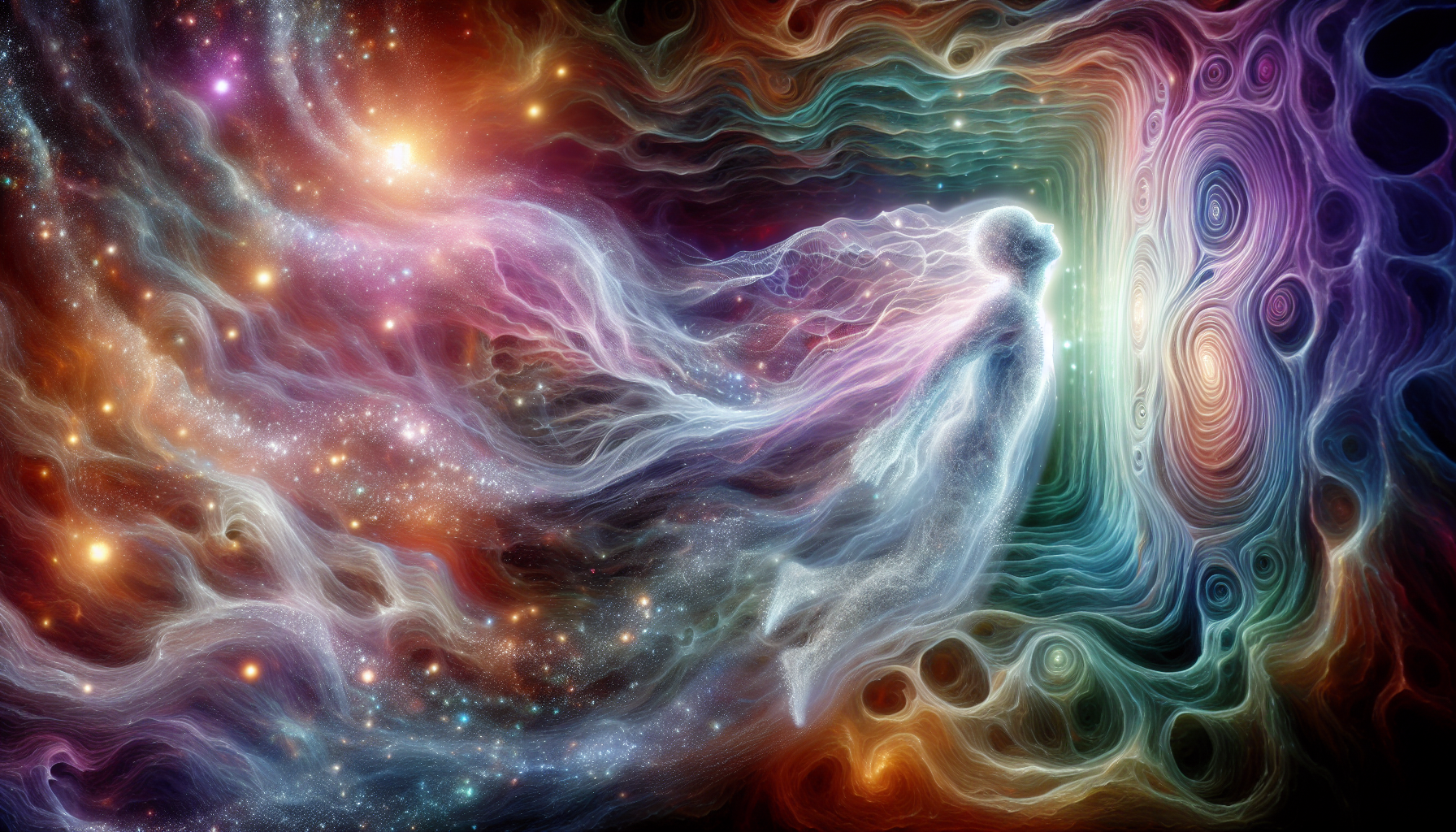
When the body succumbs to death, what remains sets sail on an esoteric voyage through various planes of existence.
The spirit encounters stages such as the Plane of Initial Transition and the Plane of Reflection, each offering unique lessons and opportunities for growth.
Personally, my view aligns with these esoteric explanations, seeing death not as an end but as rebirth, a new phase of existence where the spirit continues to evolve. These concepts echo the narratives found in ancient religious texts, such as the Tibetan Book of the Dead and the Egyptian Book of the Dead, which provide guidance for the soul’s journey post-mortem.
The esoteric perspective presents a tapestry of experiences that most can only dream of, a journey illuminated with bright lights, diminished control over the physical, and the lure of eternity.
It’s a way of understanding death that transcends the skin cells and corporeal form, embracing the idea that consciousness is eternal, and life is but a single chapter in an expansive saga of existence where one can spend eternity.
Christian Perspectives on Eternal Life
In the Christian faith, eternal life is the ultimate promise, a gift from God made possible through the resurrection of Jesus Christ. It’s a narrative of hope, where Jesus’ defeat over death offers a beacon of light for all who follow.
Believers find solace in the idea that by putting their faith in the events of the crucifixion and resurrection, they are granted salvation and the prospect of an afterlife with their Creator.
Judgment is a central theme in Christian eschatology, where actions and choices in life lead to an ultimate reckoning by Jesus himself. The saved are promised an existence in heaven, while those who have not sought redemption may face an eternity in hell.
Yet, even now, believers are taught that they can experience a taste of eternal life, a heart-to-heart relationship with Jesus that transcends the temporal realm.
Insights from Eastern Wisdom
Eastern traditions offer a different lens through which to view death, one that intertwines the concept of karma with the cycle of reincarnation. Buddhism posits that after death, one is reborn according to one’s actions, continuing this cycle until enlightenment is achieved. Hinduism shares a similar belief in samsara, where the soul moves through various life forms, shaping its future based on the karma accrued.
These beliefs extend beyond humanity, suggesting a profound interconnectedness among all living beings. Reincarnation is not just a means of explaining life’s inequalities but a framework for spiritual evolution. For Hindus, the ultimate goal is Moksha, a state of eternal bliss and divine union, while Buddhists strive for Nirvana, the cessation of desires and suffering.
The Tibetan Book of the Dead serves as a guide for the departed, navigating the bardo, the intermediate state between death and the next rebirth or liberation.
Interfaith Views on the Afterlife
The tapestry of afterlife beliefs is rich and varied, with each culture weaving its own narrative. Many religions present a system of rewards and punishments, using the afterlife to exert moral judgment on the living. For some, like the Lutherans, salvation is not earned but graciously given by God’s grace. Others, such as atheists, see death as the final end, urging a focus on the life we live on Earth.
From the dualistic heavens and hells of Christianity and Islam to the cycles of birth and rebirth in Hinduism and Buddhism, the afterlife remains a profound mystery. Judaism, with its varied interpretations, encourages ethical living and fulfilling earthly responsibilities. Indigenous beliefs, like the Native American vision of the Happy Hunting Ground, speak of peaceful realms for reuniting with ancestors. Agnostics keep an open mind, viewing the afterlife as one of life’s great unanswered questions.
The Long Death vs. The Short Death
Christine Core’s “Angelic Reiki” delves into the nuances of the dying process, discussing the concepts of the long death and the short death. The long death signifies a gradual unwinding, a slow disengagement from the physical realm providing time for reflection and preparation. It’s a process that can span months or even years, characterized by a decline that allows for longer periods of closure and acceptance.
On the other hand, the short death, when a person dies suddenly and swiftly, often leaves loved ones and the departing soul with little time for comprehension of the transpired events.
Guiding Souls: The Role of Loved Ones
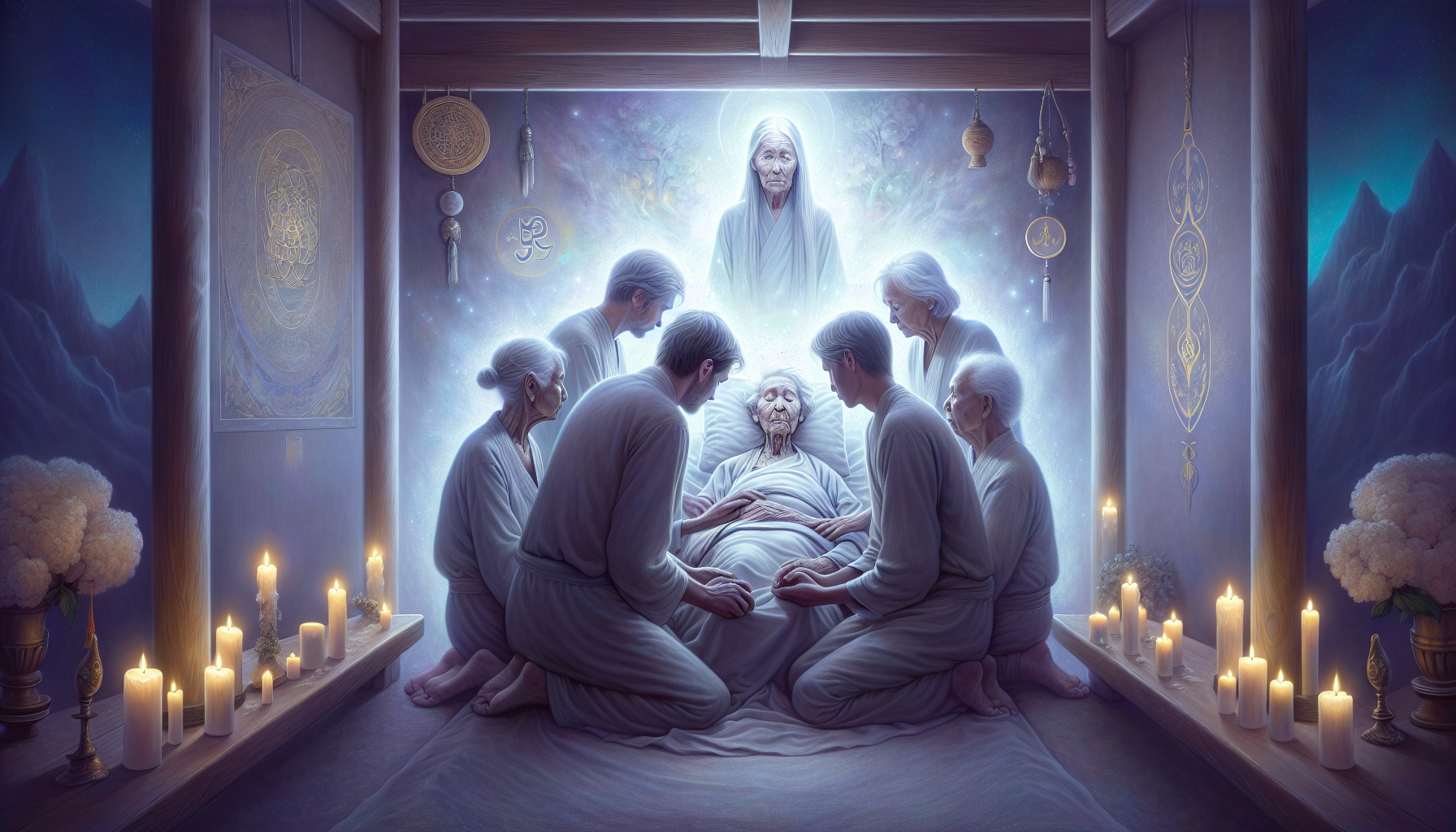
The process of dying represents a sacred passage, during which loved ones assume a crucial role in providing comfort and support during the final moments. They bear witness to terminal lucidity, a phenomenon where the dying person may experience a surge of clarity and energy before their departure, offering a chance for last words and connections.
Hospice care amplifies this support, catering to not only physical but also spiritual needs, with chaplains and spiritual counselors aiding in navigating the complexities of faith and meaning at life’s end.
Grief and Continuity of Spirit
Though the body passes away, for those left behind, experiencing grief is a normal reaction to loss. While grief can lead to acceptance, complicated grief may persist and interfere with daily life, resembling depression or anxiety. Individuals may find comfort in community support and services like Griefline, which provide a space to express and process the pain of loss.
Many find solace in the belief that their family members and loved ones continue to exist beyond the physical world, a comfort supported by experiences of patients connecting with the departed through hypnosis.
The Profound Journey: Embracing Death's Spiritual Essence
Often cloaked in mystery and fear, death can be perceived as a transformative experience, triggering contemplation of life’s purpose. As individuals near the end of life, many turn their focus to spirituality, seeking to align their actions with their values and contemplating the happiness they’ve known.
Embracing the spiritual essence of death can offer a greater understanding of life’s profound journey and the passage to a different state of being.
Summary
As we reach the conclusion of our journey, we reflect on the richness of perspectives on what happens when we die. From the physical transition to the spiritual evolution of the soul, the variety of beliefs presents a tapestry of hope and continuity that transcends the mortal coil. Embracing these views can provide comfort, solace, and perhaps even a newfound appreciation for the profound journey that death represents.
Frequently Asked Questions
What is Angelic Reiki?
Angelic Reiki combines traditional Reiki with the guidance and healing of angelic beings, serving as a powerful healing modality.
Who are the founders of Angelic Reiki?
The founders of Angelic Reiki are Kevin and Christine Core. They have brought a new perspective on healing and the dying process.
What does the book "Angelic Reiki" cover?
The book "Angelic Reiki" covers topics such as our relationship with health and disease, the dying process, the role of Angels, and the dimensions of healing. It offers a comprehensive exploration of these subjects.
Do all religions have a concept of an afterlife?
No, not all religions have a concept of an afterlife. The specifics of the concept vary greatly across different faiths.
Can grief counseling help with the pain of losing a loved one?
Yes, grief counseling can provide support and strategies to cope with the emotional impact of loss, helping individuals navigate their journey through grief to find healing and peace.

